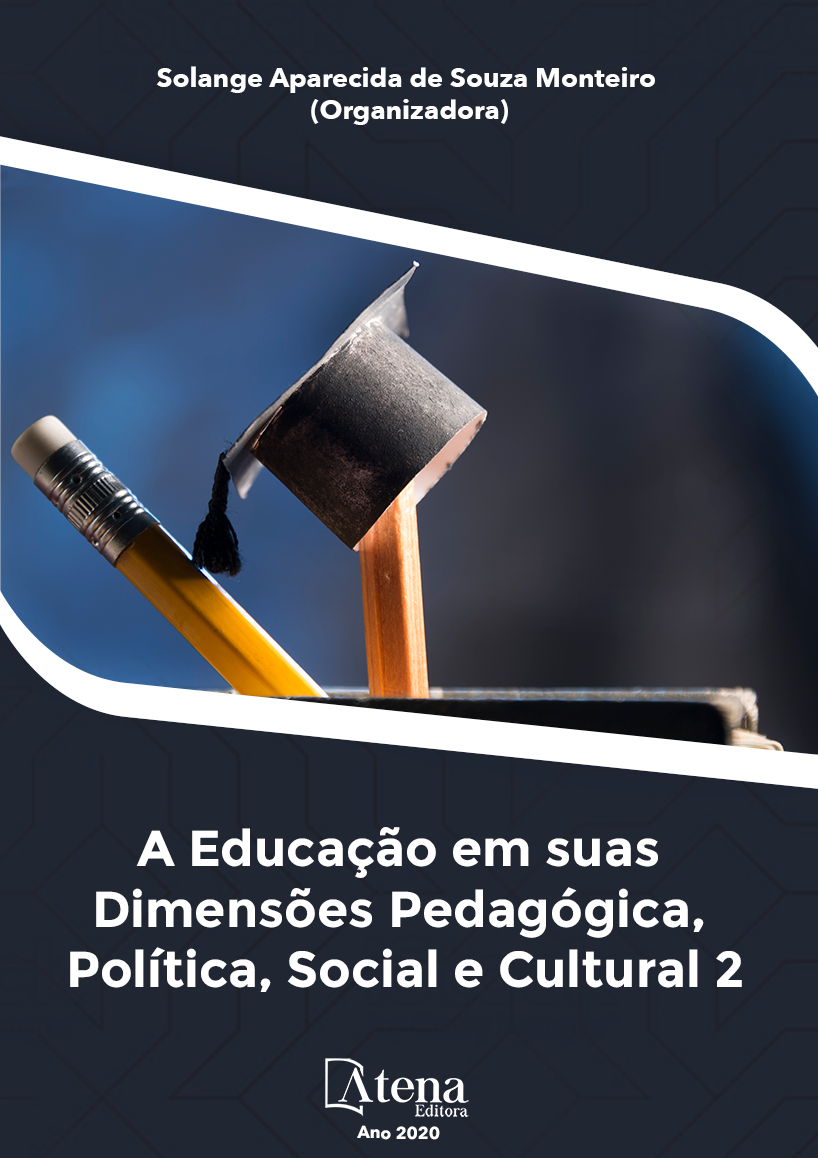
EDUCAÇÃO PERMANENTE DOS DOCENTES NA EDUCAÇÃO SUPERIOR: UMA REVISÃO INTEGRATIVA
A educação permanente é um
conjunto de ações contínuas de trabalhoaprendizagem que que pode ser utilizado dentro
do ensino superior com os docentes, na busca
de encontrar uma situação-problema, e se tem
o direcionamento para superá-la. Objetivo:
Identificar as diferenças entre as publicações
nacionais sobre a educação permanente dos
docentes na educação superior. Metodologia:
Estudo descritivo, de revisão integrativa, visando
responder: Quais os beneficios da educação
permanente dos docentes na educação
superior? Na revisão integrativa, é necessário
escolher um objetivo, os questionamentos
que devem ser respondidos, posteriormente
realizer a pesquisa para verificar e coletar o
máximo de pesquisas primárias relevantes
que estejam dentro dos critérios de inclusão e
exclusão selecionados. Para a coleta de dados
foi utilizado um questionário para sumarizar
os estudos que respondessem à questão de
pesquisa e os critérios de inclusão. Elegeu
o recorte temporal de 10 anos (2007-2017).
Resultados: selecionaram-se 68.760 produções
científicas, após a filtragem pelos critérios de
inclusão foi para 2.671 e exclusão totalizando
11 artigos, onde foi preenchido um formulário
para cada produção selecionada, que permitiu
a síntese dos dados, possibilitando a obtenção
de informações sobre a caracterização das
produções. Conclusão: Foram encontrados
quatro principais benefícios da educação
permanente para os docentes na educação
superior, a necessidade de mudança de atitude
docente para que possam se encaixar nas novas
necessidades educacionais contemporâneas,
com a mudança do cenário educacional. É
preciso que o docente busque reconstruir o seu conhecimento com a melhoria pessoal,
científica e pedagógica. Entendendo o dever crítico de ensinar o pensamento e atitudes
embasadas na necessidade das ações individual, no âmbito coletivo, metodológico,
social e cultural dos atores dentro do ensino superior.
EDUCAÇÃO PERMANENTE DOS DOCENTES NA EDUCAÇÃO SUPERIOR: UMA REVISÃO INTEGRATIVA
-
DOI: 10.22533/at.ed.28320130218
-
Palavras-chave: Avaliação; Regulação, Educação; Ensino Superior.
-
Keywords: Evaluation; Regulation, education; University education.
-
Abstract:
Continuing education is a set of continuous work-learning actions that
can be used within higher education with teachers, seeking to find a problem situation,
and the direction to overcome it. Objective: To identify differences between national
publications on continuing education of teachers in higher education. Methodology:
Descriptive study, integrative review, aiming to answer: What are the benefits of
continuing education of teachers in higher education? In the integrative review, it is
necessary to choose an objective, the questions that must be answered, then conduct
the survey to verify and collect as many relevant primary surveys that meet the selected
inclusion and exclusion criteria. For data collection, a questionnaire was used to
summarize the studies that answered the research question and the inclusion criteria.
Elected the 10-year time frame (2007-2017). Results: 68,760 scientific productions
were selected, after filtering by the inclusion criteria went to 2,671 and exclusion
totaling 11 articles, where a form was filled for each selected production, which allowed
the synthesis of the data, allowing the obtaining of information on the characterization.
of productions. Conclusion: We found four main benefits of continuing education for
teachers in higher education, the need to change the attitude of teachers so that
they can fit the new contemporary educational needs, with the changing educational
landscape. It is necessary that the teacher seeks to reconstruct his knowledge with
personal, scientific and pedagogical improvement. Understanding the critical duty to
teach thinking and attitudes based on the need for individual actions, in the collective,
methodological, social and cultural scope of actors within higher education.
-
Número de páginas: 15
- Maria Dias Oliveira
- Zilma Torres Dias
- kelly de Oliveira Mota
- Josy Lira Dias


